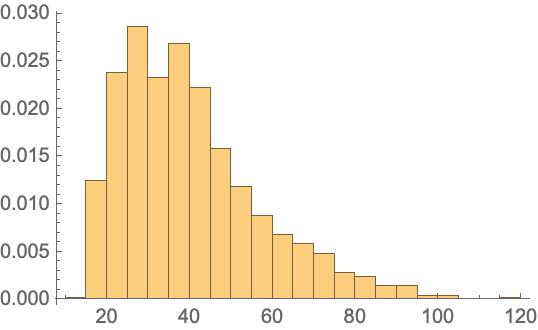Wolfram Function Repository
Instant-use add-on functions for the Wolfram Language
Function Repository Resource:
Conduct a cumulative sum-based randomness test that creates a test statistic from the maximum value that a cumulative sums random walk achieves
ResourceFunction["CUSUMMaxRandomnessTest"][sequence] conducts a cumulative sum-based randomness test on sequence. | |
ResourceFunction["CUSUMMaxRandomnessTest"][sequence,"properties"] conducts a cumulative sum-based randomness test on sequence and returns the associated property. |
| "TestStatistic" | returns the test statistic |
| "PValue" | returns the p-value associated with the test |
Generate a sequence of random integers:
| In[1]:= |
Visualize the sequence:
| In[2]:= |
| Out[2]= |  |
Apply a cumulative sums test:
| In[3]:= |
| Out[3]= |
| In[4]:= |
| Out[4]= |
Generate a sequence of integers from a random subsequence:
| In[5]:= |
| In[6]:= |
Visualize the sequence:
| In[7]:= |
| Out[7]= |  |
Apply a cumulative sums test. The small p-value indicates that the sequence is non-random and hence should be rejected:
| In[8]:= |
| Out[8]= |
| In[9]:= |
| Out[9]= |
Define and plot rule 30:
| In[10]:= |
| In[11]:= |
| Out[11]= |  |
Test whether rule 30 is random:
| In[12]:= |
| Out[12]= |
CUSUMMaxRandomnessTest requires sequences of length 100 or more:
| In[13]:= |
Visualize the sampling distribution of the test statistic:
| In[14]:= |
| In[15]:= |
| Out[15]= |  |
This work is licensed under a Creative Commons Attribution 4.0 International License